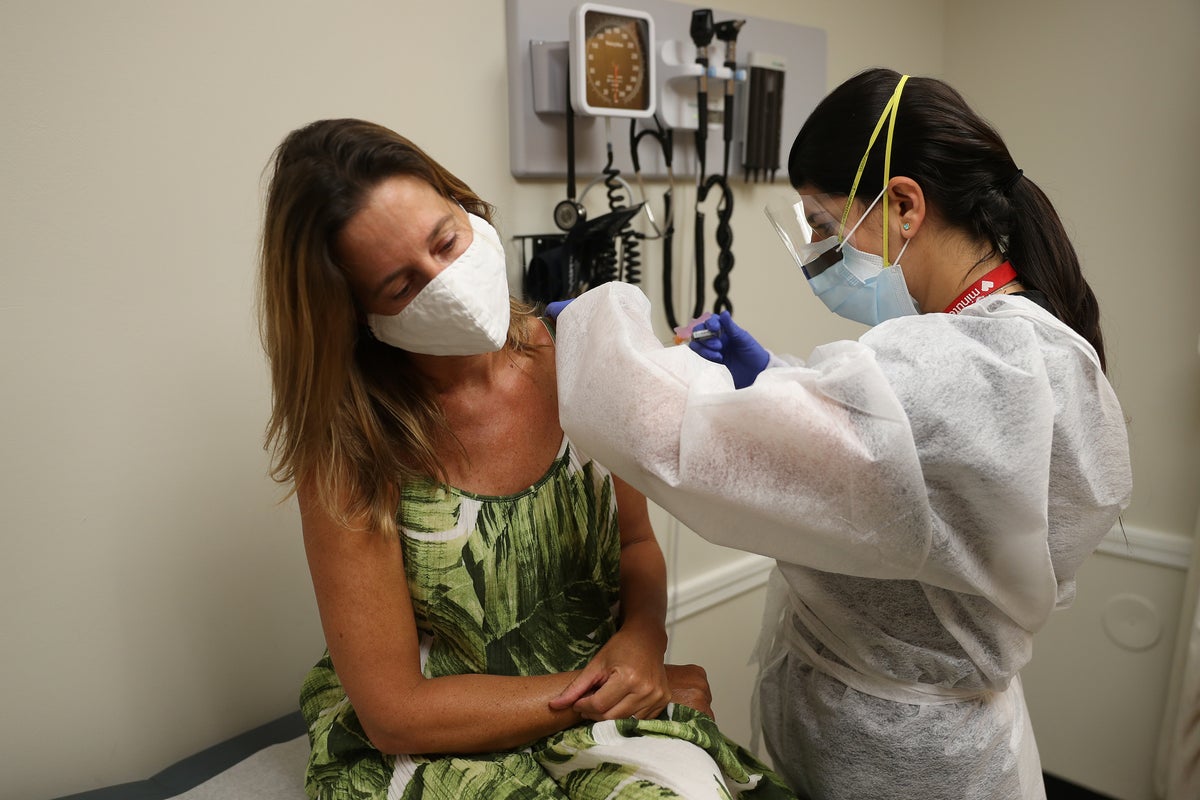Health
Urgent Flu Vaccine Campaign Targets Vulnerable Groups This Season

As the cooler autumn weather approaches, health authorities are issuing a strong recommendation for vaccination against influenza, particularly for five high-risk groups. Each year, flu season brings increased cases of sniffles, fever, and cough, impacting millions globally. While many will experience mild symptoms, influenza can lead to severe complications, including hospitalization and death for vulnerable populations.
Public health experts are closely monitoring the 2025-2026 flu season, with early indicators suggesting a moderate level of flu activity in the United States. According to the Centers for Disease Control and Prevention (CDC), the previous year’s high flu activity often leads to a more moderate season, as it is uncommon to experience two consecutive severe flu seasons. However, data from the Southern Hemisphere’s flu season, which runs from April to October, indicates a more severe situation there, raising concerns about a potential increase in cases in the U.S.
Annual Vaccination Remains Crucial
The flu vaccine is updated annually to align with the anticipated circulating strains. For the upcoming season, all flu vaccines available in the U.S. will be trivalent, offering protection against three primary influenza virus strains: an A (H1N1) virus, an A (H3N2) virus, and a B/Victoria virus. Despite the vaccine’s variable effectiveness due to frequent mutations of flu viruses, vaccination is still the best defense against severe illness.
Vaccination is particularly critical for certain groups, including older adults, young children, pregnant women, and individuals with chronic health conditions. The CDC recommends that everyone aged six months and older should receive the flu vaccine annually. The urgency for vaccination is underscored by the potential for significant flu cases, especially among children and older adults.
Accessing the Vaccine
The 2025-2026 flu vaccine is currently available, with manufacturers beginning to ship doses in July and August to ensure widespread access by September. Pharmacies, healthcare clinics, and many workplaces are offering the vaccine, often at little or no cost. Public health officials emphasize that vaccination not only protects individuals but also helps shield those around them who may be more vulnerable.
Concerns regarding the complexity of obtaining both flu and COVID-19 vaccines have surfaced. Fortunately, individuals can receive the flu shot alongside other vaccines, such as the COVID-19 vaccine and those for respiratory syncytial virus (RSV) and pneumonia, without compromising effectiveness. If unsure about which vaccines are appropriate, individuals should consult their healthcare provider or pharmacist.
In addition to vaccination, maintaining good health practices is essential. Regular handwashing, avoiding close contact with sick individuals, and staying home when feeling unwell are effective strategies to minimize the spread of flu and other respiratory viruses.
As flu season approaches, public health officials stress the importance of staying informed and proactive. The combination of vaccination and healthy practices can play a significant role in protecting communities. If you have not yet received your flu shot, now is the time to act, ensuring both your health and the health of those around you this season.
-

 Health3 months ago
Health3 months agoNeurologist Warns Excessive Use of Supplements Can Harm Brain
-

 Health3 months ago
Health3 months agoFiona Phillips’ Husband Shares Heartfelt Update on Her Alzheimer’s Journey
-

 Science1 month ago
Science1 month agoBrian Cox Addresses Claims of Alien Probe in 3I/ATLAS Discovery
-

 Science1 month ago
Science1 month agoNASA Investigates Unusual Comet 3I/ATLAS; New Findings Emerge
-

 Science4 weeks ago
Science4 weeks agoScientists Examine 3I/ATLAS: Alien Artifact or Cosmic Oddity?
-

 Entertainment4 months ago
Entertainment4 months agoKerry Katona Discusses Future Baby Plans and Brian McFadden’s Wedding
-

 Science4 weeks ago
Science4 weeks agoNASA Investigates Speedy Object 3I/ATLAS, Sparking Speculation
-

 Entertainment4 months ago
Entertainment4 months agoEmmerdale Faces Tension as Dylan and April’s Lives Hang in the Balance
-

 World3 months ago
World3 months agoCole Palmer’s Cryptic Message to Kobbie Mainoo Following Loan Talks
-

 Science4 weeks ago
Science4 weeks agoNASA Scientists Explore Origins of 3I/ATLAS, a Fast-Moving Visitor
-

 Entertainment4 months ago
Entertainment4 months agoLove Island Star Toni Laite’s Mother Expresses Disappointment Over Coupling Decision
-

 Entertainment3 months ago
Entertainment3 months agoMajor Cast Changes at Coronation Street: Exits and Returns in 2025









